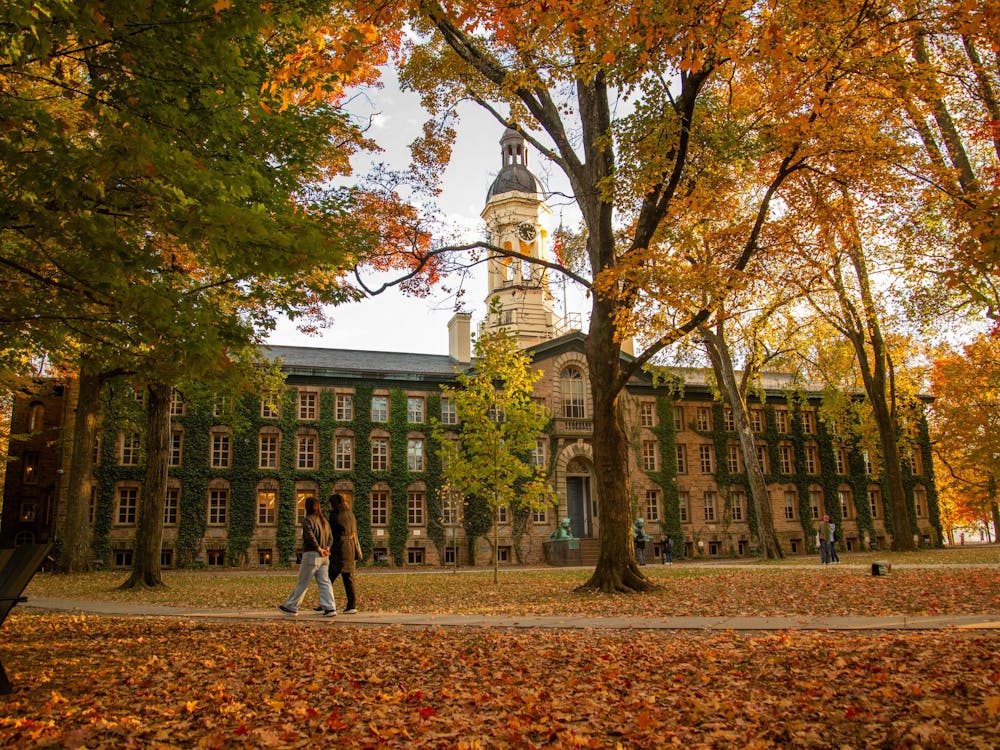A month ago, The Daily Princetonian reported on potential changes in Princeton's bookselling scene. According to the article, Mark Burstein, the University's executive vice president for administration, has worked out an ambitious plan. The University Store will cease to sell books, and Labyrinth — a bookshop that began at Columbia and now has a second store at Yale — will take over the U-Store's textbook business and succeed Micawber Books as Princeton's general bookseller.
This plan has its advantages. Like many of my colleagues, I am very fond of Micawber Books and its staff and owners, and would be sorry to see their wonderful independent shop leave Nassau Street and be replaced by yet another chain. But Labyrinth, in its New York and New Haven branches, concentrates on academic books and has a larger stock of current scholarly titles than either the U-Store or Micawber.
Many professors and graduate students would like to have a great academic bookseller in town. So would the many foreign scholars who spend time at the University or the Institute for Advanced Study — a number of whom have mentioned to me, over the years, how strange they find it that a great American university doesn't have a place where they can see the newest scholarly books.
The first problem is that Labyrinth — at least to judge by its two existing shops — is not a great academic bookseller. The shops are spartan: No effort here to suggest that going to a bookshop could be fun. They carry a solid but unspectacular stock of current university press titles, a much larger number of academic paperbacks, some older hardbacks and a lot of remainder books. Labyrinth doesn't remotely compare to the greatest academic bookshop in the United States, the Seminary Coop in Chicago, either in selection — believe me, you can do research at the Coop — or in atmosphere — the Coop manages to be welcoming as well as austere. Bringing Labyrinth to town will add a new and useful element to the Princeton book world. But it won't transform the local intellectual scene, as the Coop has at Chicago.
The second problem — and in a way, the graver one — has to do with process. Burstein, to judge from the 'Prince' article, has come to play hardball. He reminds me a bit of a new-generation Yale administrator described by a former Princeton professor, Alvin Kernan, in a memoir: "sharp as a tack, and every bit as painful." This style in university administration is fashionable nowadays. The university, many trustees and presidents seem to feel, can change for the better only if it operates like a corporation, with a powerful CEO making policy and strong supporting administrators carrying it out — while grumpy, privileged faculty and others clear out of the way.
Well, we need presidents to make decisions and hard-charging administrators to carry them out. Anyone who has ever spent time trying to get an academic meeting to focus or come to a resolution can appreciate why strong executives believe they should have a lot of autonomy and power. Most of the good decisions Princeton has made in my time — from the new financial aid policies to building four-year residential colleges — have been made by our presidents, acting on their own responsibility.
But Princeton has flourished not as a corporation but as a peculiar, communal place with a strong local culture — as a university whose strong presidents listened hard to all stakeholders before coming to decisions and where hardball was played only when there was a specific reason. This principle is embodied in the committees, many of them created in response to student and faculty pressure in the sixties, that still play so large a role in Princeton's public life — and whose counterparts have been eliminated at most of our sister institutions.
Our campus has a number of inhabitants who are genuine experts on bookstores. Many scholars, novelists and poets are noted authors who give readings and buy books at shops around the country. Some social scientists and historians are experts on the book trade.And then there are the book bums and library rats, to name two of my own prouder titles, who always figure on university faculties. Though I have asked around, I haven't yet encountered a single member of any of these groups whom the higher ups consulted. Certainly no official committee was assembled to look at the situation and make recommendations.
Our administrators are very canny. Maybe they and Labyrinth, working together, can produce something better in Princeton than what Labyrinth has managed to create in New York and New Haven. But I'd feel a lot more confident about their results — and a lot happier about their methods — if they would stop playing Chainsaw Al and go back to the time-consuming, frustrating and invaluable path of consultation that they used to follow. Anthony Grafton is the Henry Putnam University Professor of History. He can be reached at grafton@princeton.edu.








